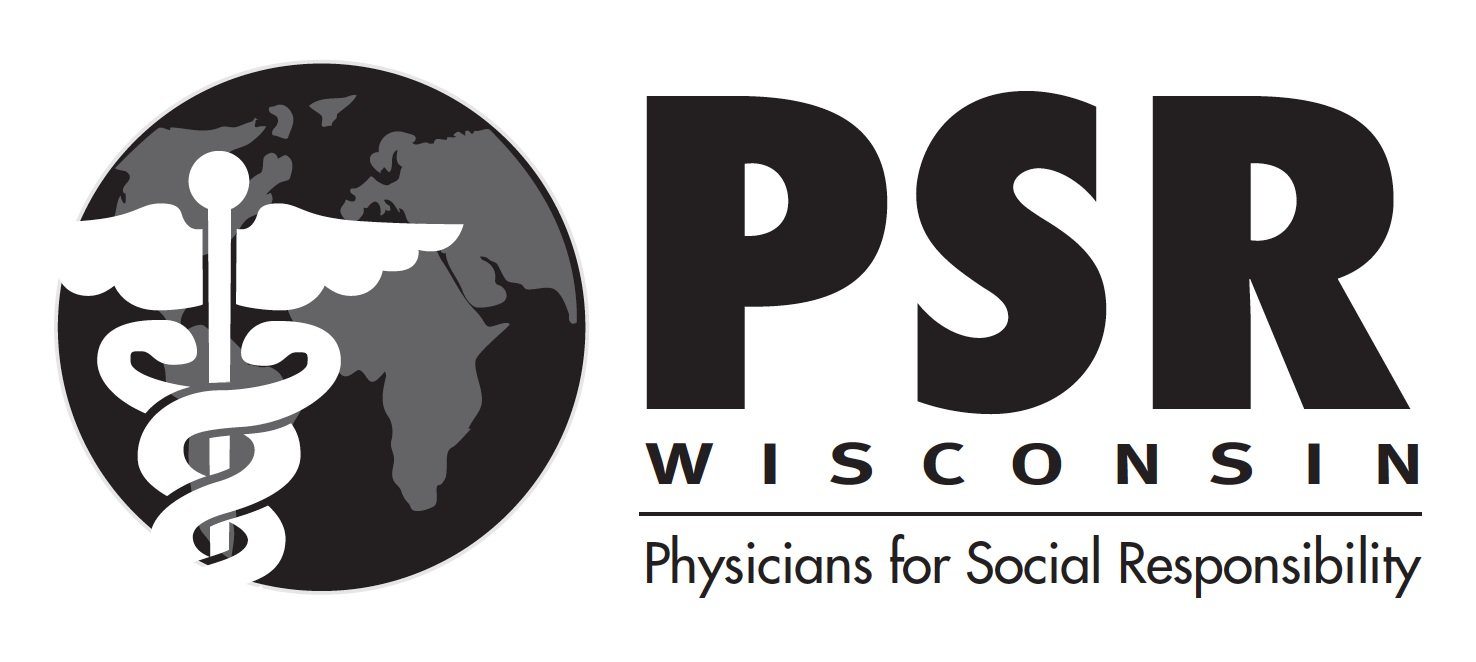Racial Disparities in Policing & Health Care
2021
Police Violence
We, the members of Physicians for Social Responsibility Wisconsin, were horrified by the killing of George Floyd in Minneapolis, Minnesota and the shooting of Jacob Blake in Kenosha, Wisconsin. The video footage of the treatment from the police show a fundamental lack of respect and caring for them as human beings, a life-threatening use of physical restraints and gun use, and a complete failure to recognize and respond to Mr. Floyd’s obvious respiratory distress.
For Black communities across the country, Mr. Floyd’s death and Mr. Blake’s injuries are tragedies that have been repeated over and over. Wisconsin is no different from any other state. In the last 6 years, Southeast Wisconsin has lost Dontre Hamilton, Jay Anderson Jr., Sylville Smith, Terry Williams, Adam Trammell, Ty’Rese West, Alvin Cole and Joel Acevedo to police violence.
Over 1000 Americans are fatally shot each year by US police departments. Black men are nearly three times more likely than White men to be killed by police intervention. This reflects both our country’s history of racism and a police culture that relies on violence. US police officers’ routine use of dangerous force to “restrain” people, their lack of conflict resolution skills and their lack of medical and mental health training are a toxic combination. Immunity from prosecution when police injure or kill citizens further reinforces this cycle of violence.
We support the recommendations of the Poor Peoples’ Campaign, the Coalition of Communities of Color (CCC) and Campaign Zero to end police violence. We need immediate actions that include: strict limitations on use of force, independent investigations of acts of police violence, and criminal charges for officers involved in the serious injury or death of a citizen. And we need more long term, fundamental changes in policing: demilitarization of police, increased community involvement in and control of policing, and a shifting of funds from heavily armed police forces to unarmed, highly trained community-based “peace and safety” forces.
Systemic Racism in Health Care System
We recognize that racism is not only at the root of police harassment and killing of people of color, but at the root of poverty and lack of access to high quality health care by Black, Latino and Native American communities. The infant mortality rate for Black children is twice that of White children in the US and nearly three times that of White children in Wisconsin (source).
The percentage of Black children with asthma is nearly twice that of White children. Blacks and Latinos suffer higher rates of hypertension, diabetes, heart disease, stroke and cancer than the national average.
And these medical conditions have left them more vulnerable to the Covid-19 virus.
As Reverend Dr. William Barber II wrote in a pastoral letter to the nation:
“Black people are six times as likely to die from the (COVID-19) virus as their white counterparts. Even before COVID, large numbers of Black Americans died because of the racial disparities in healthcare, which are systemic and not unintentional.”
It is critical to reverse our nation’s long history of medical neglect of people of color. Our national leaders must establish a single payer or “Medicare -for-all” health system so that all Americans, regardless of income, race or ethnicity, receive comprehensive preventive medical care, obstetric and pediatric care and treatment of chronic physical and mental illnesses. Our chapter has long supported the goals of the organization Physicians for a National Health Program – Wisconsin (PNHP).
Communities of color are also more likely to live in areas with unsafe drinking water, air pollution and other environmental toxins. We must work for stricter environmental standards to prevent the health risks associated with lead, PFAS (forever) chemicals and endocrine disrupting chemicals in our water as well as ultrafine particles, volatile organic compounds and other pollutants in our air to protect communities at risk.
Redirecting Military Dollars to End Poverty
Job training and employment, quality education, safe housing, food security, high quality, affordable daycare, youth development, treatment of mental illness and substance abuse are all linked to improvements in public safety and health and reductions in interactions with police and incarceration.
In 2020, the US allocated $721 billion, more than half of its discretionary budget, to military spending.
Most large US cities spend 25-40% of their general funds on policing.
Our tax dollars could be far better spent addressing the roots of poverty and providing economic, social and health security to the poor, a disproportionate number of whom are people of color.
For more information, see resources below:
Physicians for Social Responsibility Wisconsin, Steering Committee members:
Bruce Barrett, MD
Ann Behrmann, MD.
Mary Doherty
Hannah Mortensen, Executive Director
Paula Rogge, MD
Amy Schulz, RN
Melissa Stiles, MD
